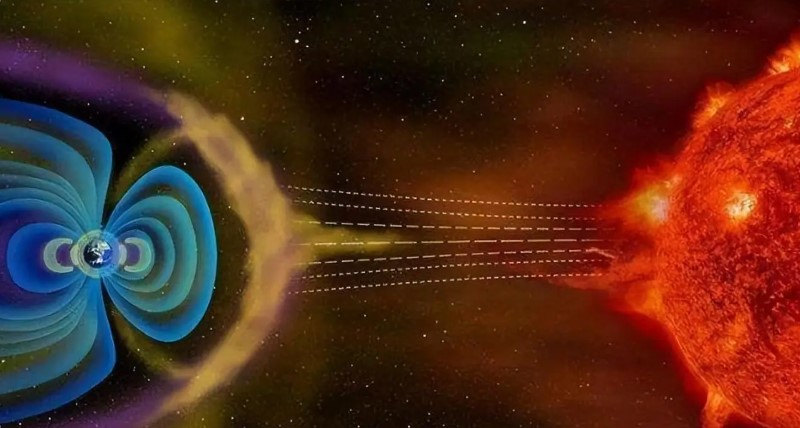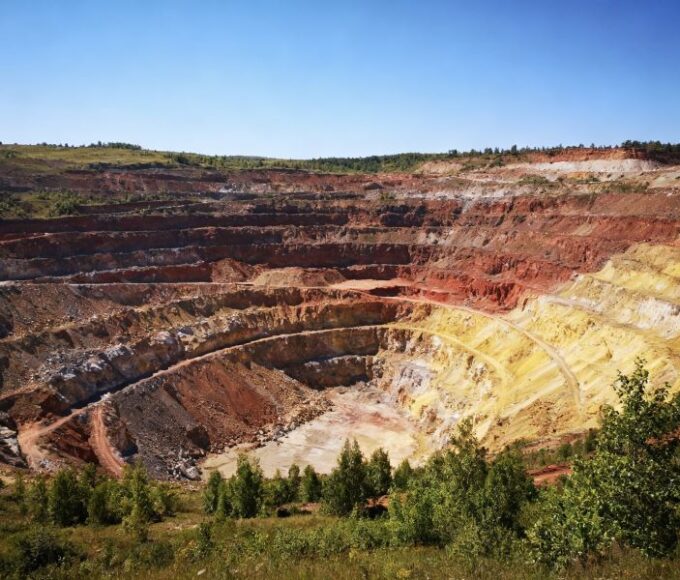In the vastness of the universe, our home, the Earth, has a unique property in that it has a huge and complex magnetic field. The existence of this magnetic field allows the Earth to withstand the solar wind and protects our life and environment. However, the formation of this magnetic field has been an important topic of study for scientists. So, why does such a magnetic field exist on Earth? Why don’t other celestial bodies have it?
Formation of the Earth’s magnetic field

The dynamo theory posits that the Earth’s magnetic field originates from the complex interactions between its liquid outer core and the inner core. As the molten iron and nickel in the outer core circulate due to convection currents—driven by the heat from radioactive decay and the solid inner core—this movement generates electric currents. During the flow of liquid metal in the Earth’s core, energy released from heat and radioactive decay drove convective motions that created electrical currents, and these currents further generated powerful magnetic fields. The Coriolis effect, caused by the Earth’s rotation, further organizes these flows into spirals, enhancing the magnetic field’s strength and stability.
Moreover, recent advancements in geophysical research, including magnetotellurics and paleomagnetism, have revealed that the Earth’s magnetic field is not static. It undergoes periodic reversals, where the magnetic north and south poles switch places, an event that has occurred several times throughout geological history. These reversals, occurring roughly every 200,000 to 300,000 years, provide insights into the dynamics of the Earth’s interior and its thermal evolution.
Why does the Earth have a magnetic field and other celestial bodies do not?

The answer to this question may involve several factors. First, the size and mass of the Earth may be the key factor. Massive and dense objects are more likely to develop strong magnetic fields because they have stronger gravitational fields and are better able to bind liquid metals together, creating convective motions and currents. Smaller mass and lower density objects, on the other hand, have a harder time doing this.
Second, the Earth’s rotation may also be an important factor. The Earth’s rotation causes centrifugal forces on the liquid metals in the Earth’s core, driving them toward the poles and creating a liquid metal vortex. The motion of this vortex is the primary source of the Earth’s magnetic field. Without the Earth’s rotation, it might not be possible to form such a vortex and produce a powerful magnetic field.
Finally, the Earth’s unique internal structure may also be an important factor. The Earth has an outer core of liquid metal and an inner core of solid metal, and this two-layer structure allows the Earth to produce complex magnetic fields. Other celestial bodies may not have such a structure and therefore cannot form complex magnetic fields.

In summary, the Earth’s enormous magnetic field is probably the result of a combination of several factors, including its size, mass, rotation and internal structure. This allows the Earth to have a powerful and complex magnetic field that protects our life and environment. However, it also makes the Earth a “Chosen Sphere”, as objects with such a magnetic field are very rare in the universe. The importance of the Earth’s magnetic field
Importance of the Earth’s magnetic field
With the advent of new technologies, such as satellite monitoring and geomagnetic modeling, we can gain deeper insights into the variations of the Earth’s magnetic field and its effects on life. The Earth’s magnetic field is vital to the existence of life. First, the Earth’s magnetic field blocks the solar wind. The solar wind is a stream of particles consisting of a high-speed stream of electrons and protons emitted from the surface of the sun. Without the Earth’s magnetic field, the solar wind would hit the Earth’s atmosphere directly, stripping the atmosphere of gases and making it impossible for life to survive. With the protection of the Earth’s magnetic field, we can live safely on Earth.
In addition, the Earth’s magnetic field has a significant impact on the lives of animals. Many animals, such as birds, sea creatures, and insects, rely on the Earth’s magnetic field for navigation. For example, migratory birds use the Earth’s magnetic field to determine the direction of their migration; sea creatures use the Earth’s magnetic field to find food and breeding sites; and insects use the Earth’s magnetic field to determine the time and seasonal changes.
Broader Implications and Conclusion
In essence, the Earth’s magnetic field is a product of its unique geological and physical characteristics, resulting from a delicate interplay of factors. As we continue to study the complexities of the magnetic field and its fluctuations, we deepen our understanding of not only our planet but also the broader universe. The rarity of such protective magnetic fields in other celestial bodies reinforces Earth’s significance as a “Chosen Sphere” in the cosmos, making the study of this phenomenon critical for both planetary science and the search for life beyond our world. This ongoing exploration will ultimately contribute to our knowledge of how similar mechanisms might manifest in other celestial bodies, potentially revealing new insights into the conditions necessary for life elsewhere in the universe.












